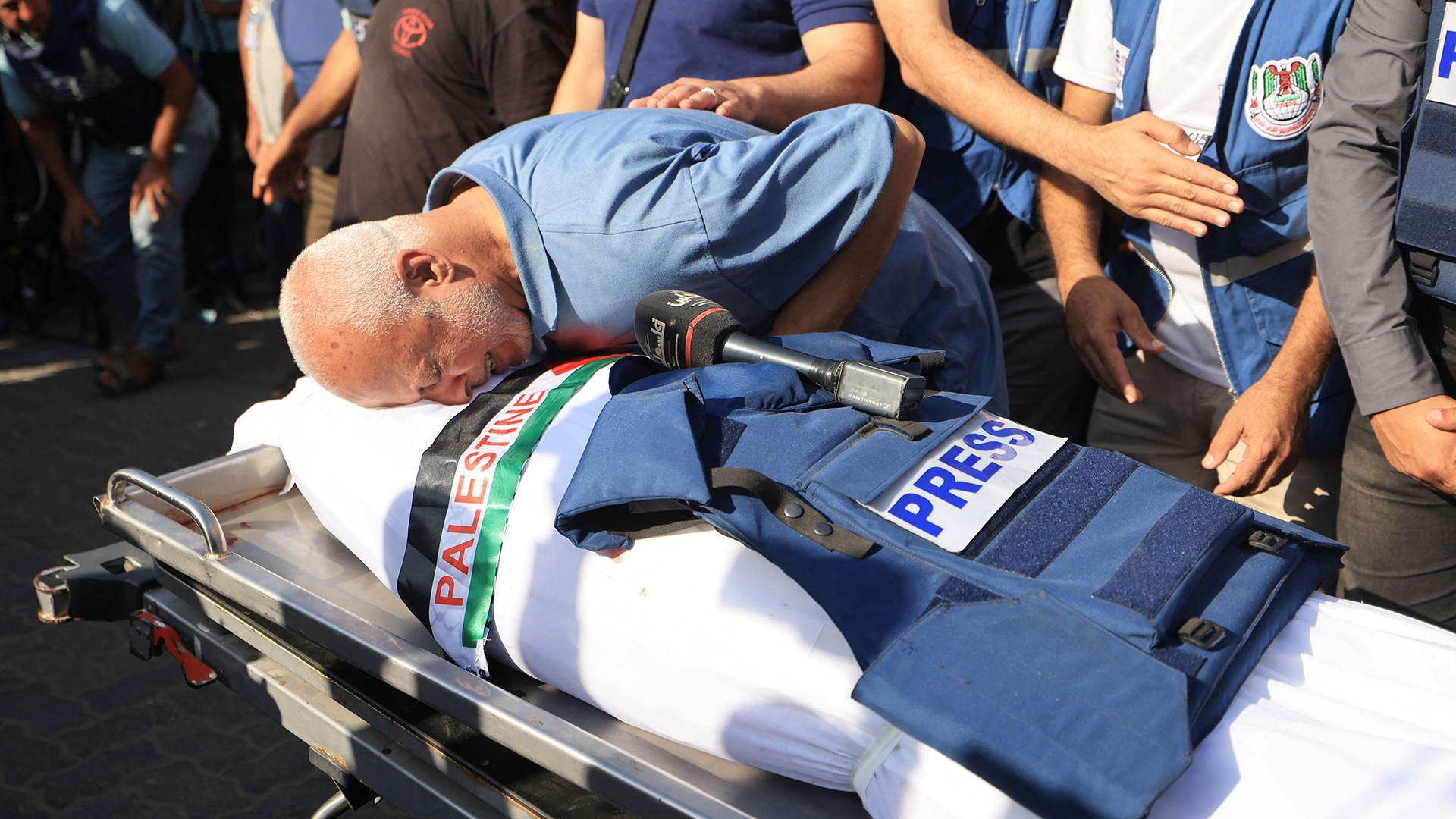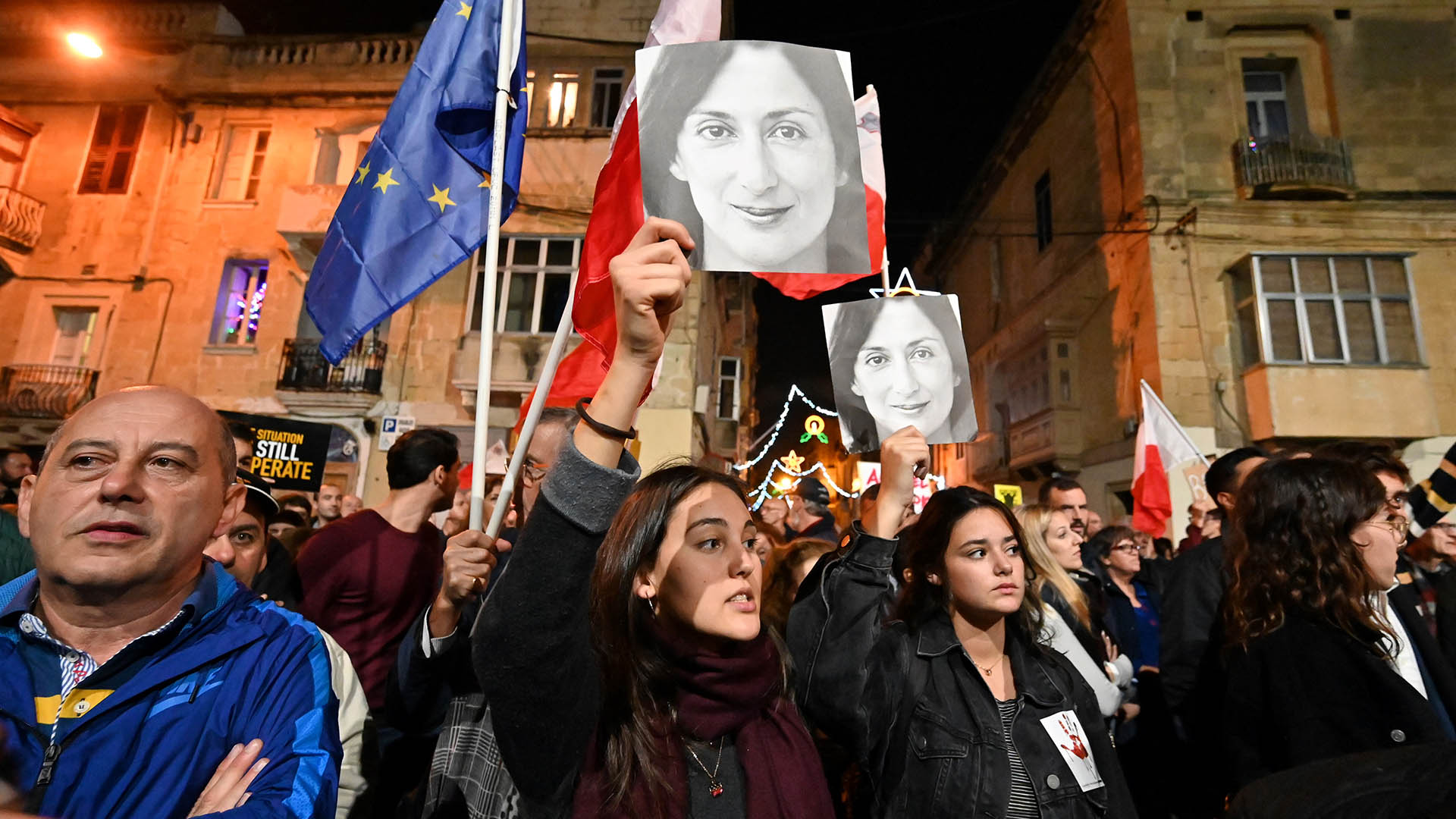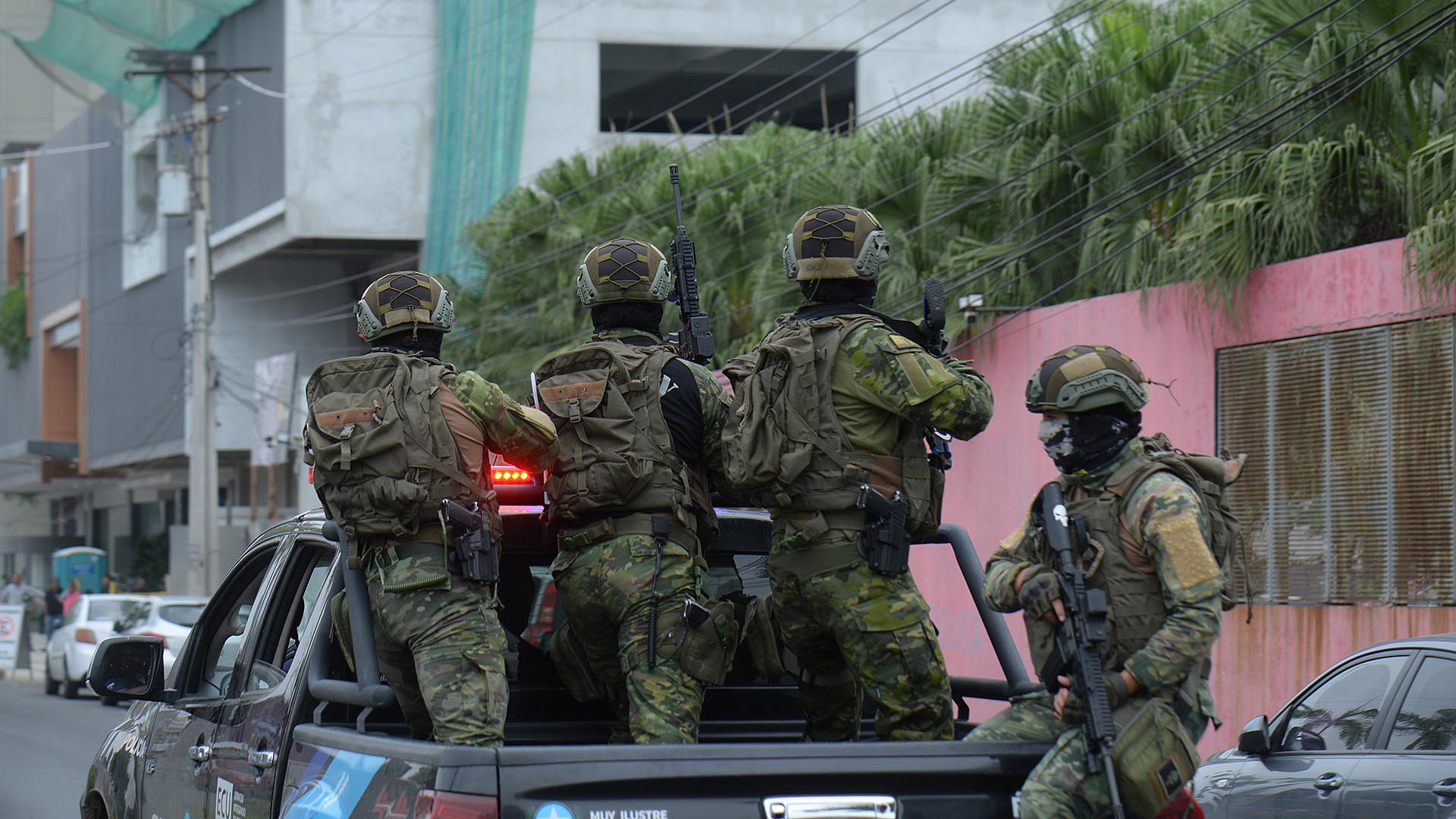PRESS FREEDOM
Press freedom under fire as political pressure on journalists intensifies worldwide, rankings reveal
In the biggest global election year in history, the 2024 World Press Freedom Index shows a chilling pattern of political disregard for journalists’ safety — from Europe to the Middle East.
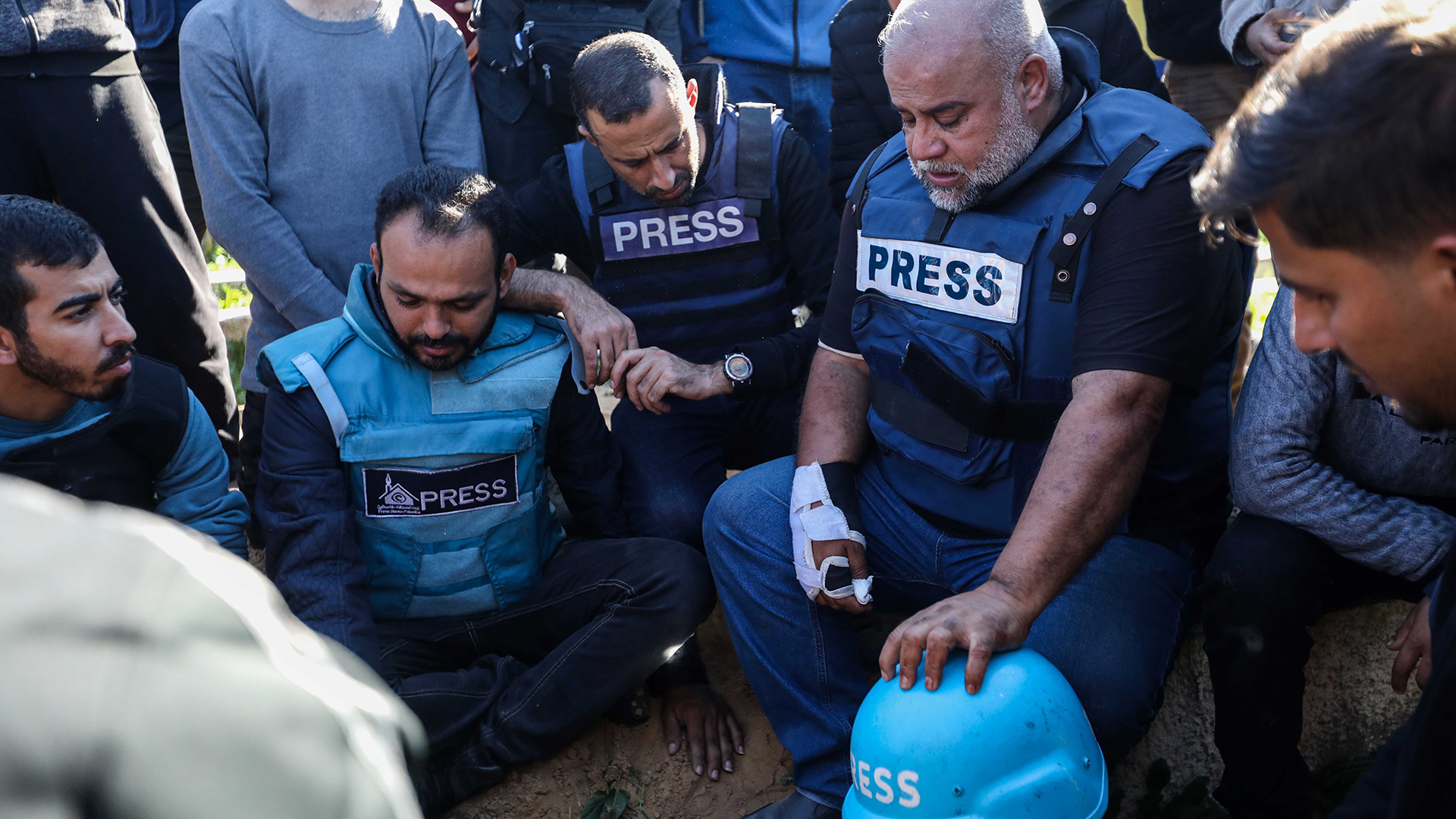
Governments worldwide are failing to protect — and frequently cracking down on — independent media in 2024, casting a shadow over Reporters Without Borders’ annual press freedom rankings in a major global election year.
The nonprofit, known as RSF, which advocates for journalists and media workers, publishes the World Press Freedom Index to mark World Press Freedom Day. The index scores countries and territories based on five indicators: political support and respect, security, economic constraints, legislative environments, and sociocultural factors. Of the five, the political indicator dropped the most since December 2022, averaging a fall of 7.6 points worldwide.
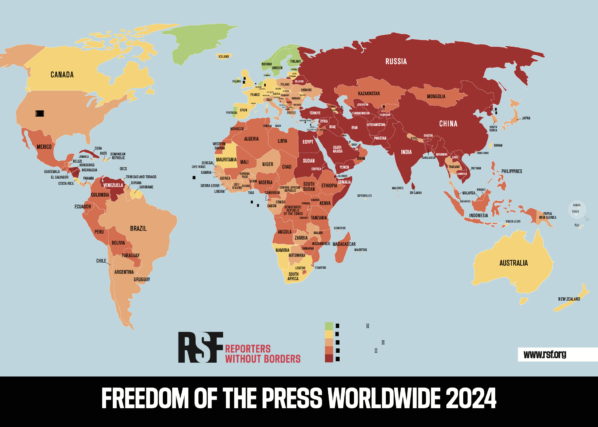
“States and other political forces are playing a decreasing role in protecting press freedom,” Anne Bocandé, RSF’s editorial director, said in a statement. “This disempowerment sometimes goes hand in hand with more hostile actions that undermine the role of journalists, or even instrumentalise the media through campaigns of harassment or disinformation.”
Intimidation and censorship of journalists, disinformation campaigns, widespread distrust in media, sluggish regulation of generative AI to prevent political deepfakes, and government restrictions on social media all contributed to worsening conditions for journalists in 2023, RSF found. The index is intended to give a snapshot of the previous calendar year.
Russia, despite the war in Ukraine, rose two places in the rankings to 162nd “due to other countries falling,” obscuring a drop in its overall score. More than 1,500 journalists have fled the country since its 2022 invasion of Ukraine, and the number of journalists branded “foreign agents” or “undesirable” by the Kremlin is growing. In the Middle East, Israel’s standing has declined, with its classification shifting from “problematic” to “difficult” over its moves to suppress reporting from Gaza since the start of the war in the strip, and Israeli Defense Forces killing Palestinian and Lebanese journalists.
Half the world’s population is expected to head to the polls this year, amounting to the biggest global election year in history. RSF warns that elections are often coupled with an uptick in violence against journalists, citing several examples from 2023 in Africa, such as in Nigeria and the Democratic Republic of Congo. In 2024, journalists have already been targets of violence ahead of recent national elections in the Asia-Pacific, according to RSF, including the murders of three journalists in Bangladesh, arbitrary detentions and enforced disappearances in Pakistan, and online and physical attacks in Indonesia.
The slide in political will to protect journalists also affected countries at the top of the index. Norway, which ranks first, saw its political score fall by nearly two points. Meanwhile, Ireland fell from second place to eighth, due to politicians subjecting media outlets to “judicial intimidation.”
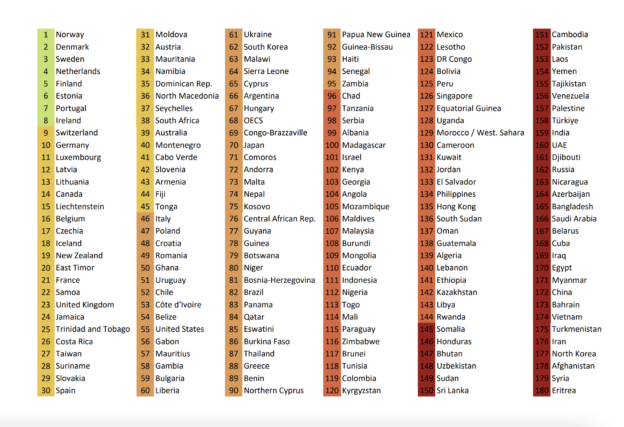
In Eastern Europe, and increasingly in the European Union, campaigns to stifle independent journalism are happening in several countries including Hungary and Slovakia, whose governments are friendly to the Kremlin. But Ukraine jumped 18 places in the rankings to 61st due to improvements in its security indicator, with fewer journalists killed than in 2022.
The United States — now 55th — dropped 10 places in the rankings due to sweeping media layoffs, shrinking public trust and antagonism from political officials. Media environments across the Americas are deteriorating as well, like in Argentina, where the election of President Javier Milei heralded the shutdown of the country’s biggest news agency.
Palestine is now the deadliest place in the world to be a journalist, according to RSF. The advocacy group said the Israeli Defense Forces’ killing of more than 100 Palestinian journalists — including 22 at work — reflected a “clear lack of political will” from the international community to enforce principles of protection of journalists, including UN Security Council Resolution 2222, a cornerstone of international law for armed conflicts.
A previous report by the Committee to Protect Journalists found that three-quarters of journalists killed worldwide in 2023 died in the war in Gaza.
Palestine ranked 157th out of 180 countries and territories in the overall 2024 World Press Freedom Index but was in the bottom 10 with regard to security. Israel, formally the leading country in the Middle East, was eclipsed by Qatar. RSF found that four of the world’s 10 most frequent jailers of journalists are in the region: Israel, Saudi Arabia, Syria and Iran.
“A growing number of governments and political authorities are not fulfilling their role as guarantors of the best possible environment for journalism and for the public’s right to reliable, independent, and diverse news and information,” RSF’s report accompanying the index said. “In all regions of the world, upcoming elections portend very strong pressure on journalists.”
